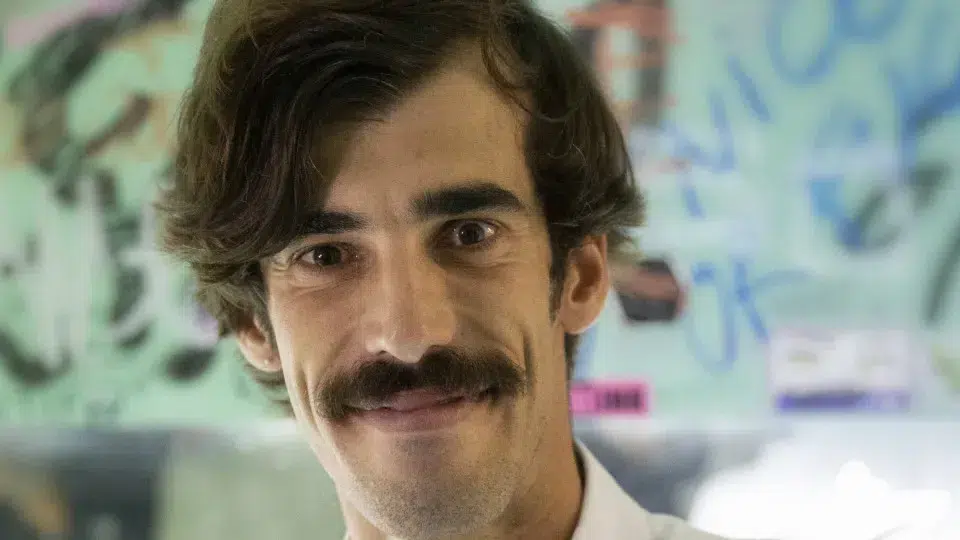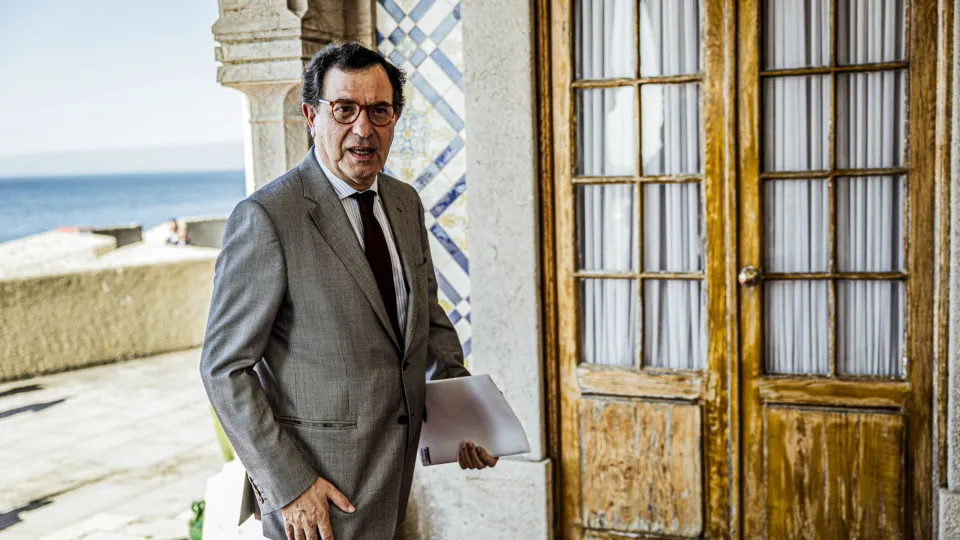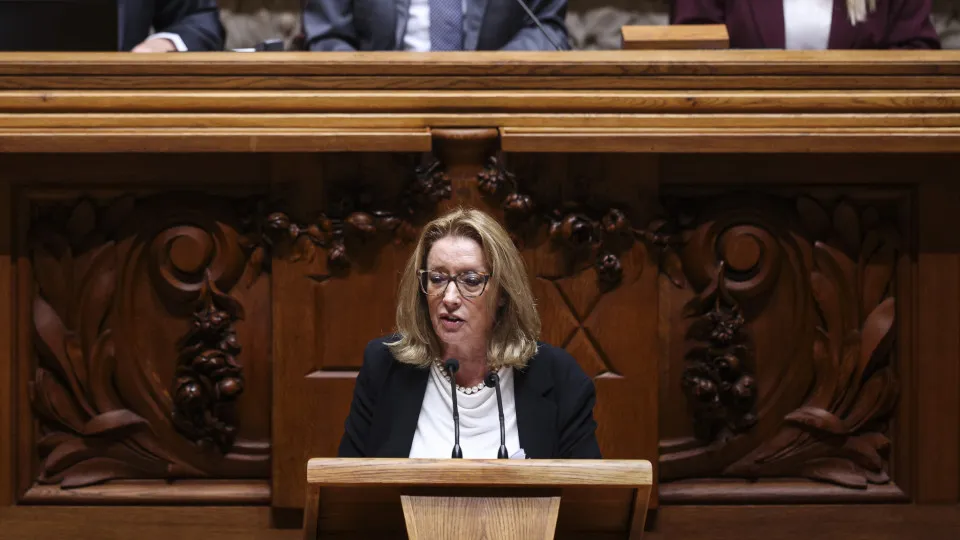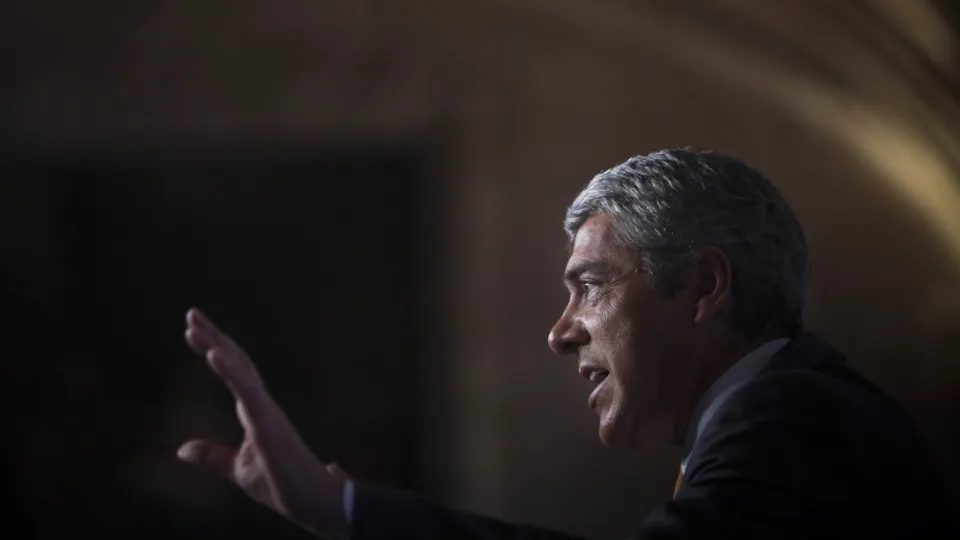
The history of the Overseas territories is a complex subject, often laden with myths, that continues to shape national identity and influence Portugal’s relations with former colonies.
David Moreira sought to combat these stigmas and “open the door” to the colonial war for “laypeople.” Equipped with his ‘heritage’ as the grandson of a combatant and a history degree in the UK, he gathered testimonies from protagonists of the Portuguese colonial empire, photographs, and infographics, creating a surprisingly concise work.
In ‘A Mais Breve História do Ultramar,’ published by Ideias de Ler, an imprint of Grupo Porto Editora, the author offers a view that is both accessible and rigorous, free from ideological bias.
Moreira does not merely revisit the colonial process and violent decolonization. He gives a voice to African poets, the Portuguese elite, and does not shy away from confronting different generations with shocking and often unspoken facts like “the scale of famines in Cape Verde in the 1940s.”
In an interview with Notícias ao Minuto, the writer, son of the current Mayor of Porto, Rui Moreira, explained his choice of a brief and modern format for the history of the Overseas territories. He reflected on the dangerous current scenario of historical illiteracy, which clearly benefits extremists. An invitation to readers to move beyond shame or jubilation and embrace a historical identity that is, after all, “infinitely more beautiful than any mythology imposed upon us.”
In such a complex subject as the Overseas territories, why did you choose a more concise format?
Firstly, because the Ideias de Ler collection, in which the book is included, called for it. Then, referring to my more pragmatic side, I thought that, given the book’s challenges—from the small non-fiction market in Portugal to the fact that I’m an unknown figure there—the best approach was to adapt the work to our times, which are not for large books. The book is more accessible because of its modern format, where brevity is fundamental. The rest was achieved through photographs, infographics, and other adjustments, which I believe open this history to laypeople.
When did you become interested in the Overseas territories? And what drove you to write about it? Did being the grandson of a Colonial War combatant motivate this interest?
The interest began early, mainly through my maternal grandfather, who, for camaraderie, patriotism, and trauma, never truly left the colonial war. Then came my time studying history in the UK, where I began to question our colonial history. During a presentation in Lisbon, Anabela Mota Ribeiro commented that I “had to leave the island to see the island”; she hit the nail on the head!
Has your experience in international economics been an asset in analyzing data from this period?
Without a doubt. Behind many ruinous military and political decisions were financial interests, some hidden and others not. For instance, understanding Mozambique’s condition is impossible without considering the export of forced labor, which destroyed its social fabric and cemented South African dominance that persists today. American opportunism in Angola can’t be explained without looking at Gulf Oil’s interests in Cabinda. The war in Guinea must be viewed in light of CUF’s interests in the province. Perhaps one day I’ll write a brief book on colonial economics…
Do we view the history of the Overseas territories with greater objectivity today?
We have made first steps with the recognition of Wiriyamu and Batepá massacres, and the courage of António Costa and Marcelo Rebelo de Sousa for this civilizational leap must be praised. However, important public figures continue to repeat myths and trivialities about former colonies. Regarding objectivity, I foresee the worst. Academic revisionism has shifted from documenting and debating history to a form of retributive erasure and shaming. I don’t believe forcing people to be ashamed of their nation’s past fosters truth in history. On the other hand, with the devaluation of humanities and the current reactionary and racist discourse, a dangerous ‘post-truth’ era is upon us: many are determined to bury our youth’s heads in the sand. Our historical illiteracy, combined with the rhetorical skills of extremists, makes our society prone to delusion.
How does the history of the Overseas territories influence Portuguese society today? And those of the former colonies?
In Portugal, this shared history left its mark on everything: from symbolic aspects like street names to far more impactful issues such as the ethnic composition of our cities. In the former colonies, the influence varies in intensity and effect. All inherited boundaries defined by us; in Mozambique, Islamist insurgency relates heavily with the disastrous Tanzania border. In Angola, once a victim of colonial horrors and indescribable civil war, our language serves as a common tongue, binding peoples who would otherwise be vulnerable to militarist impulses. In Macau, our influence seems diminished and somewhat ‘Disneyfied,’ despite excellent Sino-Portuguese relations. In East Timor, we are a mirage; in Goa, culturally supplanted by other Europeans, where psytrance is more present than Afonso de Albuquerque. Curiously, in Cape Verde and São Tomé and Príncipe, two archipelagos born from forced labor and slavery—our worst legacy—the connection to Portugal remains significant and almost omnipresent.
In ‘A Mais Breve História do Ultramar,’ you give voice to both African poets and the Portuguese elite. How did you choose these participants?
In poetry, the criteria were firstly aesthetic and then political; Viriato da Cruz was an easy choice. Regarding the Portuguese elite, I aimed to reach the core of different regimes: diplomats of the constitutional monarchy, Republicans surviving purges, Salazar’s hard core, the ‘Grupo da Choupana’ of Marcello Caetano, or high military commands. The confessions of participants are far more valuable than activist or political opponent speculations. It’s crucial to understand that even Estado Novo leaders mocked our colonial governance. I invite readers to see what the Minister of the Overseas, Armindo Monteiro, said about Luanda.
What aspect or episode surprised you most during your research?
Undoubtedly, the scale of famines in Cape Verde in the 1940s. On some islands, a third of the population died of starvation. Considering that Portugal was outside World War II, the number reveals shocking negligence. It’s a topic deserving more discussion and acknowledgment from us.
The book tackles colonial violence and decolonization. What was the greatest challenge in writing on these issues accessibly, without losing complexity and historical accuracy?
The main challenge was avoiding anachronisms, judging past facts by today’s moral and ethical standards, always a challenge for historians. Another, related to my personal temper, was preventing my reaction to uncomfortable facts from turning the book into an essay or regime assessment. For instance, having seen up close the war trauma of veterans I knew, it was hard to maintain calm and balance when discussing Américo Thomaz, who insisted on continuing the colonial war.
Despite its critical approach, the book is balanced and free of ideological bias. Which sources and historians most influenced your research?
As a specialist in the history of international relations, my main reference was Freire Antunes. I also highlight Oliveira Marques, Fernando Rosas, and Vasco Pulido Valente—all different, all brilliant. I must mention Professor Gerhard Seibert’s work on São Tomé and Príncipe and Francisco Teixeira da Mota’s magnificent biography of Henrique Galvão—I’ve annotated the book from cover to cover!
Who was the intended audience for the book? Who would benefit from reading it?
The book was written for those with little to no knowledge of the topic. Each chapter was tested with my girlfriend, who, being partly Portuguese, spent few years in our country and has no family ties to the Overseas territories. Yet, she is curious and has aesthetic and literary sensitivity, strongly influencing the book. Furthermore, as a former teacher, my editor, Henrique Pinto de Mesquita, and I wanted something for the National Reading Plan… oops! [laughs]
What message would you like readers to take after reading the book?
That our historical identity, forged through accidents, violence, negligence, and improvisation, is also the result of our ancestors’ solidarity, courage, compassion, fraternity, and heroism, therefore infinitely more beautiful than any mythology others would impose on us.




